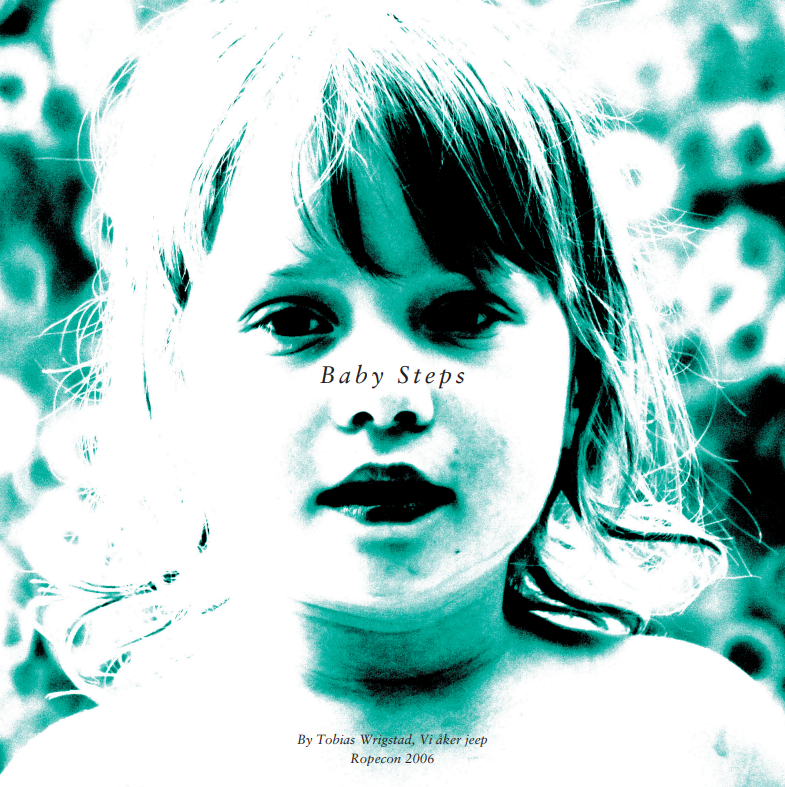In my A Game Per Year project, my goal has been to read one roleplaying game corebook for every year they’ve been published. However, I soon started to feel that it was hard to decipher how the games were really meant to be played. For this reason, I decided to start a parallel project, An Adventure Per Year, to read one roleplaying adventure for each year they’ve been published.

Baby Steps is a an hour-long Jeepform scenario by Tobias Wrigstad. It’s a response to “Thorbiörn’s Challenge”, where designers were challenged to make a game based on the same elements, each in their own style.
The setting is a therapy session. Therapy is an excellent basis for roleplay scenes because you’re supposed to bring out all your dirty laundry and the GM can play the therapist, drawing it all out. Of course, in real life therapy should be healing, but the instructions of Baby Steps suggest you specifically try to avoid that here.
Sometimes it feels like Jeepform games are created by trying to figure out what’s the most emotionally painful scenario possible and then doing that. In this case, the characters are parents who are in therapy because one of them ran over and killed their first child. Sort of by accident, sort of on purpose.
So, how to get past that?
The scenario has a couple of mechanical ideas. One is the outside and the inside perspectives on all characters. This just means narrating how your character feels in reality, something that you can also do freestyle in almost any roleplaying game. For example: “I forgive you! / I’m just saying that, I still hate you”.
Another is the use of standing up and sitting down to communicate which mode you’re speaking in at the moment. If you’re sitting down, you’re playing your character in the present moment, at the therapy session. If you stand up, you’re playing the events that led to your child’s death in a flashback.
The characters are ordinary people in the present day to make sure there’s as little emotional distance between the heavy subject matter and the player as possible.